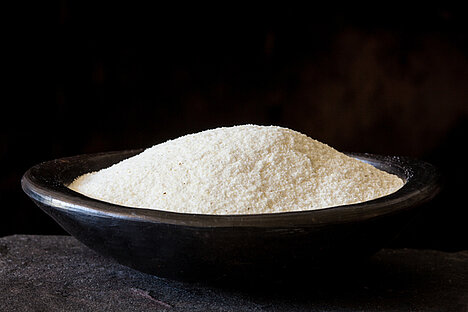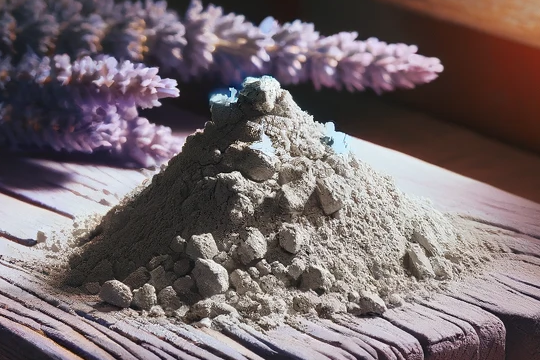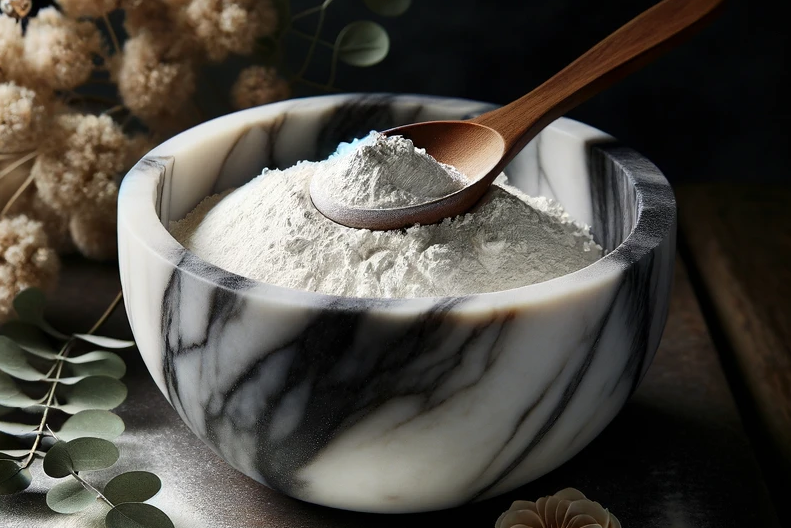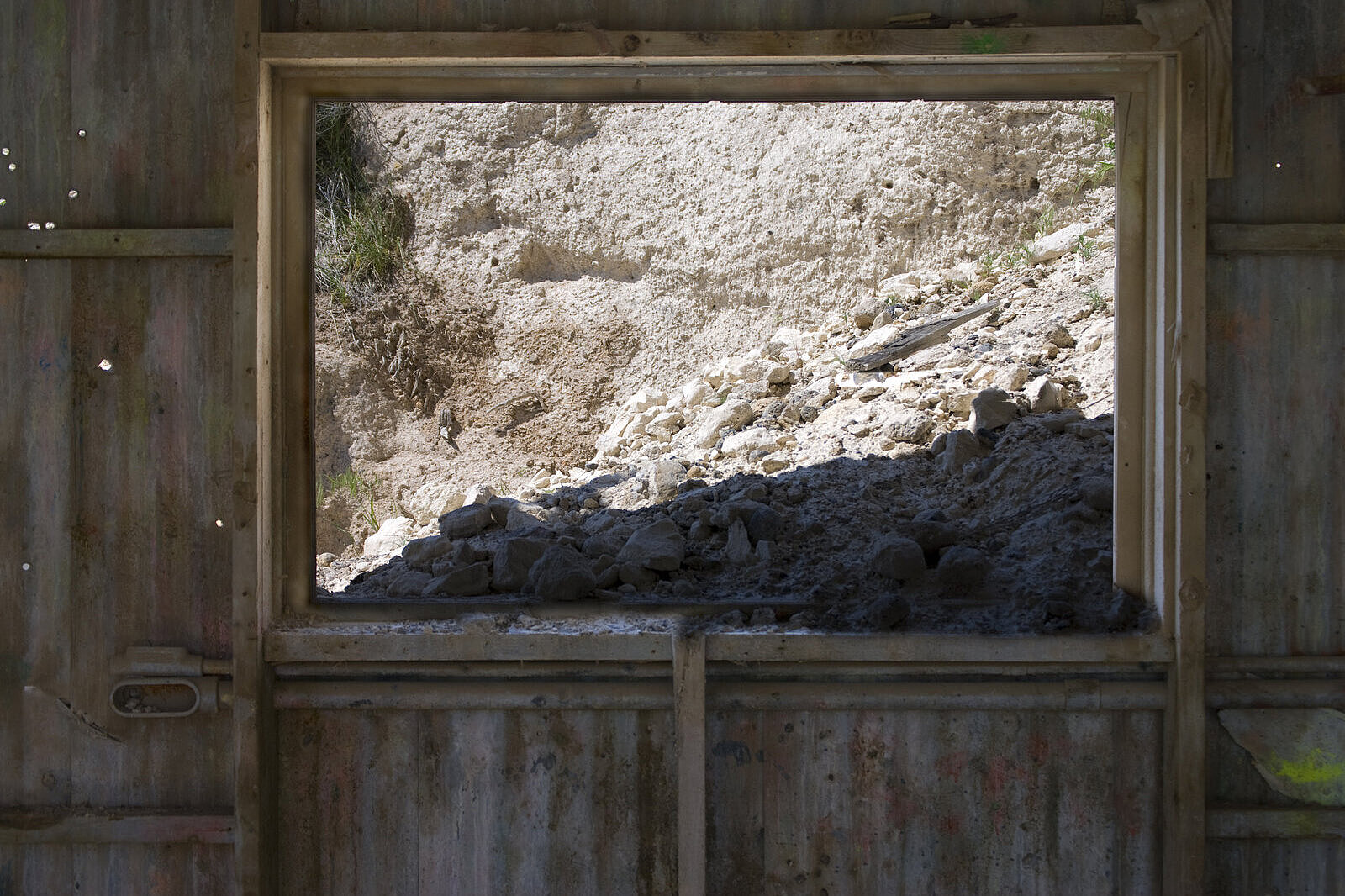Mineral earth

What is mineral soil?
Mineral earth is a collective term for various types of earth that have a high proportion of minerals and trace elements. The best known are healing earth, bentonite and zeolite. These clays are formed through natural processes such as weathering or volcanism and have a fine, powdery structure. Depending on their origin and composition, they can have different colors, from white to gray to brown.
How does mineral clay work for dogs?
Mineral clay has a high binding power and can therefore remove harmful substances, bacteria and toxins from the dog's body. It can be used both internally and externally. Internally, mineral clay can help to regulate digestion, relieve diarrhea or constipation, strengthen the immune system and improve skin and coat health. Externally, mineral clay can be used as a poultice or mask to heal wounds, reduce inflammation or relieve itching.
What are the benefits of mineral clay for dogs?
Mineral clay has many benefits for dogs due to its natural ingredients. For example, it contains calcium, magnesium, iron, zinc and selenium, which are important for bone formation, blood formation, cell division and the immune system. Mineral clay can also balance the dog's acid-base balance and thus prevent acidosis. Mineral clay can also serve as natural protection against parasites such as worms or fleas, as it affects their habitat in the intestines or on the skin.
What are the disadvantages of mineral clay for dogs?
Mineral clay also has some disadvantages for dogs that you should be aware of. For one thing, mineral clay can not only bind harmful substances, but also nutrients from food or feed. This can lead to a lack of vitamins or minerals if mineral clay is administered over a longer period of time or in too high a dosage. On the other hand, mineral clay can lead to side effects such as vomiting, constipation or dehydration if used incorrectly. You should therefore always follow the manufacturer's or vet's instructions and observe your dog's reaction.
How do you give your dog mineral clay?
Mineral clay can be given to dogs in various ways. The most common is oral administration as a powder or capsules. Care should be taken to ensure that the dog drinks enough water to ensure good dilution and excretion. The dosage depends on the size and weight of the dog and should be adjusted individually. A general recommendation is about one teaspoon per 10 kilograms of body weight per day.
Another option is to apply it externally as a poultice or mask. To do this, mix mineral clay with water to make a paste and apply it to the affected area. The application time is between 10 minutes and one hour, depending on requirements. Then rinse off the mineral clay with lukewarm water and dry the skin carefully.
Mineral clay is a versatile natural product that can have many health benefits for dogs. It can be used both internally and externally to bind harmful substances, promote digestion, strengthen the immune system and improve skin and coat health. However, you should also be aware of the possible disadvantages and side effects of mineral clay and always dose and use it in consultation with your vet or the manufacturer. Mineral clay is not a miracle cure, but a supplement to a balanced diet and good care for your dog.
If you notice any signs of hypersensitivity or poisoning in your dog, you should see your vet immediately. We are not a substitute for a vet, but we try to be as accurate as possible. Every dog reacts differently and we recommend you get a second opinion or consult your vet if in doubt.
Stay healthy and take good care of your four-legged friend!😊
Similar to Mineral earth
Bentonite is a fine powder consisting of various clay minerals. The most important are montmorillonite, kaolinite and illite. These minerals have a platelet-like structure that can swell in water...
Zeolite is a naturally occurring, microporous mineral with a unique crystalline structure consisting of aluminum, silicon and oxygen. Its special ability to exchange ions and adsorb molecules makes...
Kaolin, also known as china clay or white clay, is a naturally occurring white mineral consisting mainly of the mineral kaolinite. It is used in various industries, from ceramic production to...
Diatomaceous earth is a natural substance that contains no chemical additives. It is rich in silicon and other minerals that are important for the health of skin, hair and nails. Diatomaceous earth...



